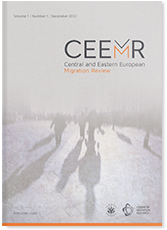Introduction: Citizenship in Post-Communist Eastern Europe
Introduction: Citizenship in Post-Communist Eastern Europe
Author(s): Costică DumbravăSubject(s): Civil Law, Government/Political systems, Period(s) of Nation Building, Post-Communist Transformation
Published by: Ośrodek Badań nad Migracjami / Uniwersytet Warszawski
Summary/Abstract: Over the past quarter of a century, all countries of Eastern Europe, defined generally as those European countries that were formerly part of the Eastern Bloc, the Soviet Union and Yugoslavia, have changed or amended their citizenship laws. Some of these changes responded to the need to modernise citizenship laws in line with rediscovered liberal democratic principles. Others were triggered by dramatic developments in the region, such as transformations of statehood, border changes, war and population movements (e.g. internal displacement, refugee flows, ethnic immigration and economic emigration). The new citizenship laws divided populations that once belonged to the same state, leading to the proliferation of both multiple citizenship and statelessness.
Journal: Central and Eastern European Migration Review
- Issue Year: 6/2017
- Issue No: 1
- Page Range: 5-13
- Page Count: 9
- Language: English

